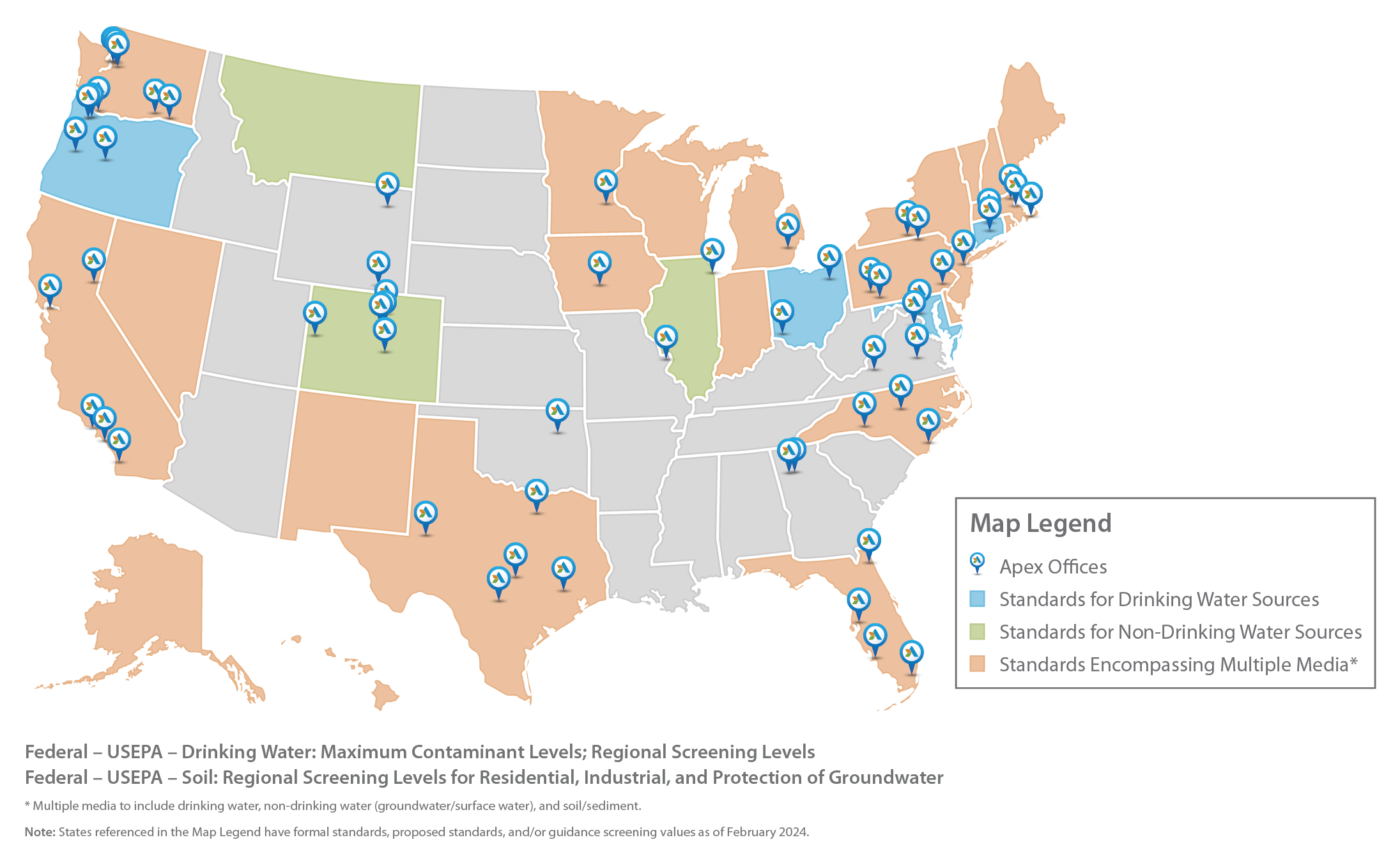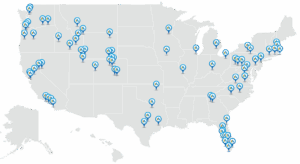PFAS Regulations & Your State
What is PFAS?
PFAS, also known as “forever chemicals” refers to a class of thousands of synthetic man-made substances that have been used in industry and consumer products worldwide since the 1940s. Due to their unique and extremely strong chemical bond, these compounds are resistant to heat, grease, water and oil. They have been used in non-stick cookware, food packaging, dental floss, pizza boxes, household cleaners, water-repellent clothing, cosmetics and firefighting foams.
Why are people talking about PFAS?
High levels of PFAS have been linked to numerous negative health effects over long exposure periods. Recently, the CDC published a study that found that PFAS could pose risks to human health at levels that are up to 10 times lower than what the EPA currently considers ‘safe.’
How are PFAS regulated?
The EPA has established a health advisory level, and to date, 23 states have already implemented their own requirements. The existing EPA guidance criteria are referenced below:
Drinking Water:
Maximum Contaminant Levels
Regional Screening Levels
Soil:
Regional Screening Levels for Residential, Industrial, and Protection of Groundwater
What are states doing?
North Carolina—a state with significant chemical manufacturing activity—is currently leading the charge with the introduction of seven bills to regulate PFAS compounds. But nearly half of the states have introduced requirements with many more following in their footsteps.

How is your state handling PFAS?
Unsure if your state is regulating PFAS or how to achieve compliance? Contact us to discuss the requirements where you are located.






